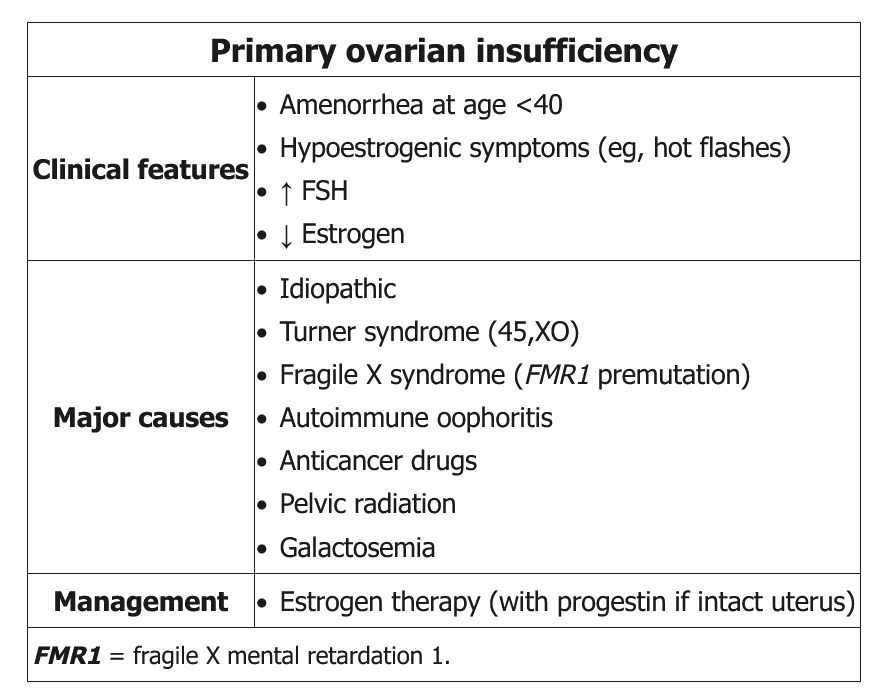primary ovarian insufficiency
- related: OBGYN
- tags: #obgyn

Primary ovarian insufficiency (POI) is ovarian failure in women age <40. Patients typically present with irregular or absent menses, often after cessation of oral contraceptives, which can mask menstrual irregularities. In younger women, symptoms (eg, hot flashes, flushing, night sweats) are often attributed to mood disorders (eg, anxiety) or relationship issues (eg, dyspareunia). Patients with POI have an elevated FSH level within the postmenopausal range (consistent with ovarian failure). Most cases are idiopathic. Otherwise, common etiologies of POI include: cancer treatment (eg, radiation, chemotherapy); genetic predisposition (eg, Turner syndrome, fragile X syndrome); and autoimmune disorders (eg, autoimmune oophoritis), as is likely in this patient with a history of hypothyroidism and family history of autoimmune conditions..
Evaluation for patients with POI should include screening for underlying etiology. Bone mineral density screening is performed due to elevated risk of osteoporosis secondary to low estrogen levels. Estrogen/progestin-containing therapy can maintain or restore bone strength and control vasomotor symptoms. Infertility due to loss of ovarian function in POI can be treated with donor egg in-vitro fertilization or donor embryo transfer.